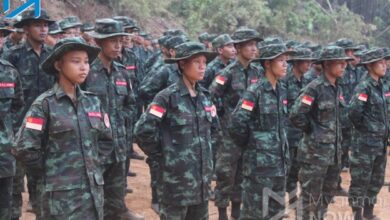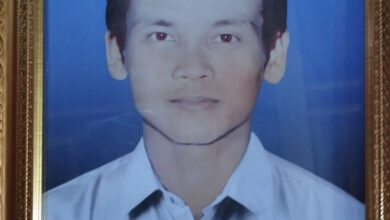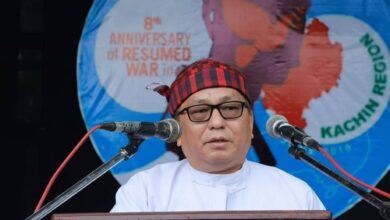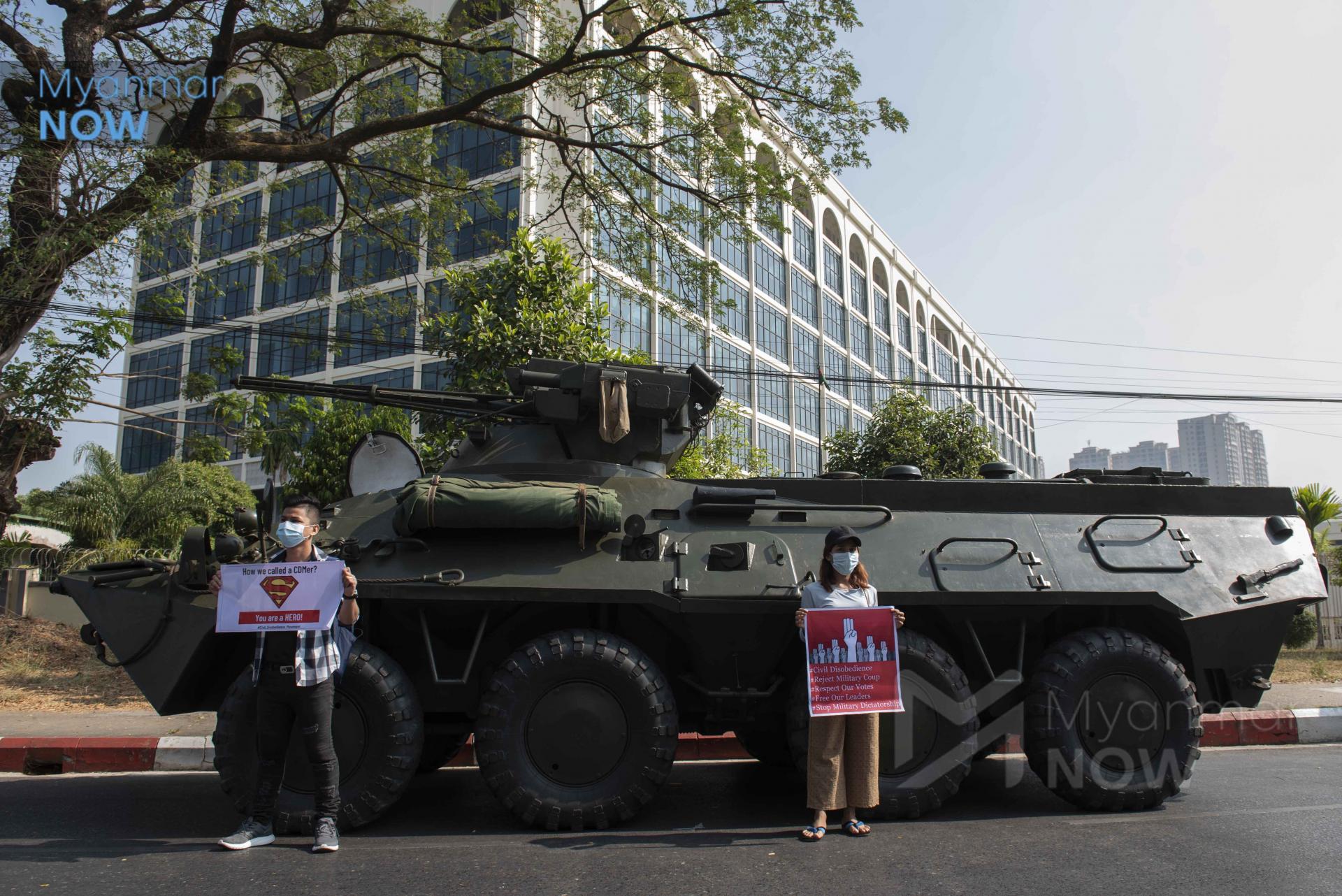
Around 120 of more than 1,000 employees at the Yangon branch of the Central Bank of Myanmar are on strike as part of the Civil Disobedience Movement, one of the workers there has said.
The work stoppage there and at other offices around the country, along with strikes and private and state-owned banks, have helped bring the financial sector to a standstill.
“We want the government we voted for and we don’t want to accept this unlawful junta,” said the worker, who asked to remain anonymous.
“If we fail this time, I will never work as a civil servant again,” said the employee.
More than 50 are on strike at the Bank’s Mandalay office, which has around 200 employees, workers said. The Naypitaw headquarters, which has over 1,000 employees, is operating with only 89% of its staff, according to Win Thaw, who was appointed as a deputy governor of the Bank by the new military regime.
There are a total of 2,525 employees working at the Bank’s offices across all three cities.
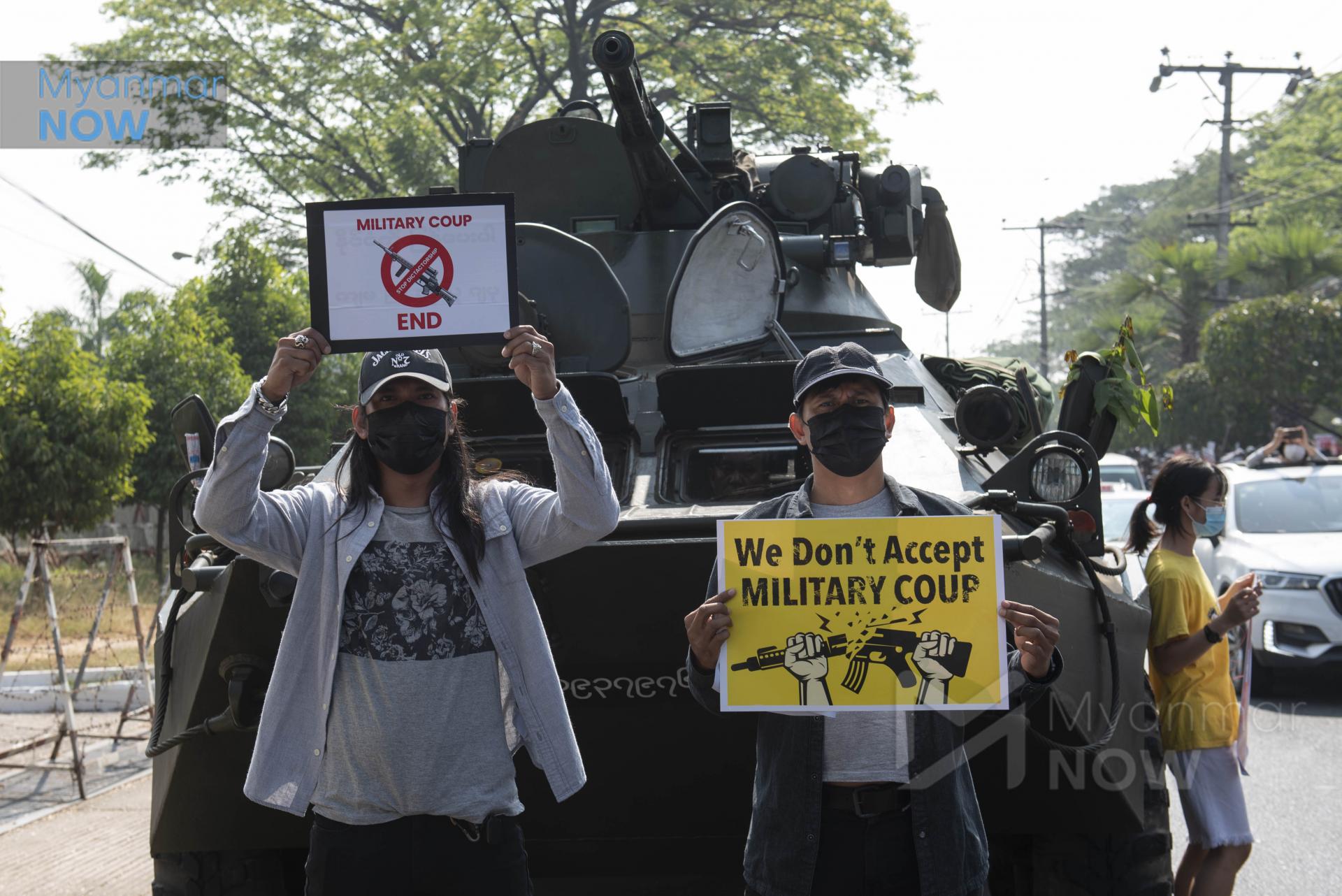
Last week protestors gathered outside the Bank’s Yangon office to urge employees to stop going to work. In response the military stationed tanks outside.
The strike at the Yangon branch started on February 8 with a little over 70 employees, then more people joined later on. The employee added that those on strike were doing so without financial help.
“We’re not going to starve,” she said. “People ask if we’ve linked up with any organizations. We don’t want money from people; we’re doing this because we want to do it, not because we want money for free.”
Those involved in the strike are rank and file employees while more senior staff have kept working, she added. Staff from finance, internal audits, accounts, research and training have all joined.
Some employees with military backgrounds, along with other leading figures at the bank, have been pressuring those on strike. Striking workers who tried to withdraw money from an employee savings plan were told they would have to send a resignation letter first.
Because the regime has arrested government employees involved in the civil disobedience movement, some employees have found new places to live so they can’t be found easily. Others have chosen to continue living at government-provided housing.
After the coup, Kyaw Kyaw Maung was removed as governor and replaced by Than Nyein, who held the role under Than Shwe’s regime and the Thein Sein presidency.
The Central Bank Law states that the Bank’s governor, vice governors and other top officials must be appointed by the President in agreement with the Union Parliament.
Min Aung Hlaing’s regime also appointed Than Than Swe a deputy governor, while Dr Khin Naing Oo, Aung Kyaw Than, Kyaw Win and Dr Lin Aung were made board members.
Bo Bo Nge, one of the supposed deputy governors, remains in detention and his whereabouts are unknown.
Win Thaw has denied claims by Central Bank employees involved in the strike that the military took money from the Bank after the coup.
